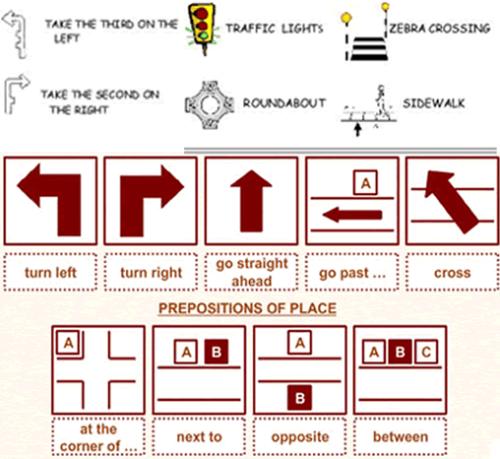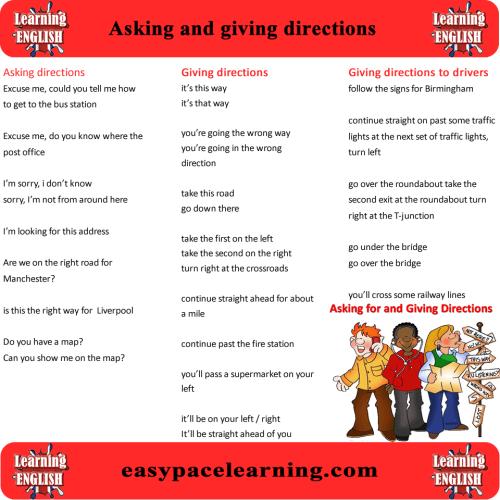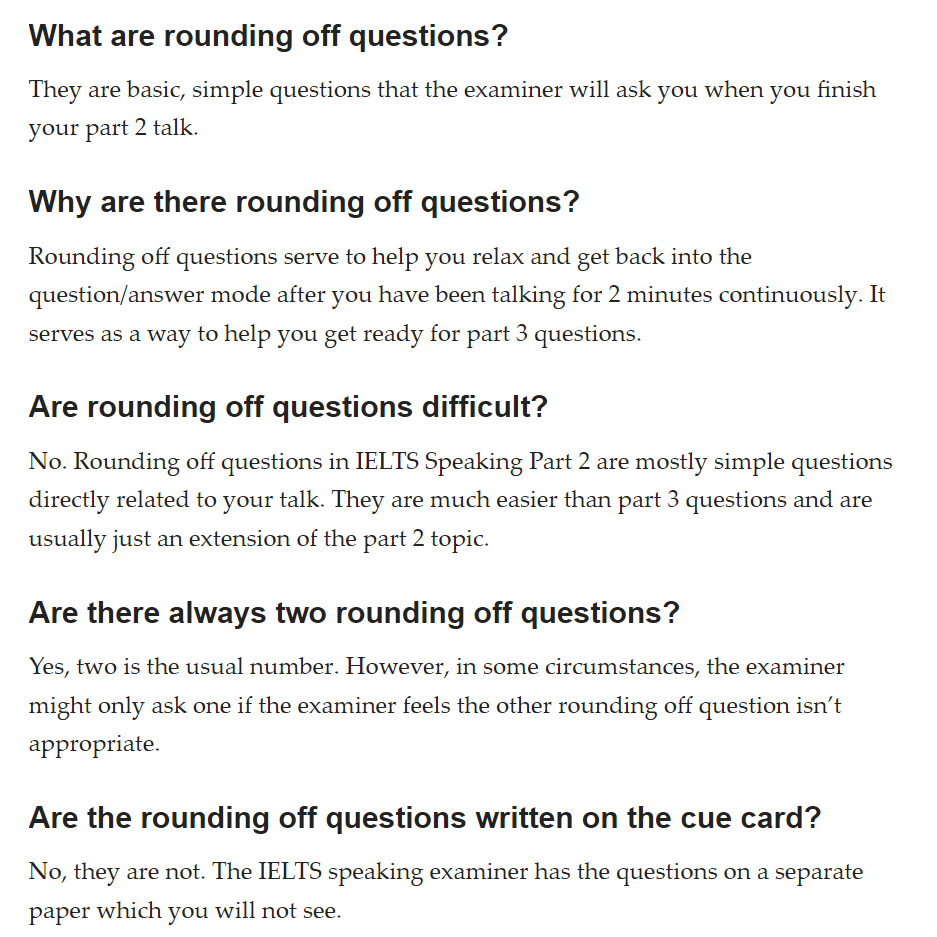Ask and Give directions (指路和问路)
一、 地点名词:destination 目的地
二、 方位表达:points of compass
in front, in front of, in the front of at the back of, behind near, next to, close to, beside
between…and…, over there on the right, on your left across from…
三、 ask directions(politely)问路
1、 the way to… how to get …, how I can get to… where the post office is
2、 Excuse me. Is there a ….near here?
Excuse me. Could you tellme…?
Excuse me. Do you know…?
四、 give directions 指路
1、 know the way
don’t know the way: A: Sorry, I don’t know the way. You can ask…
B: Thank you all the same.


2、 straight 直路

 prep沿着…… up
prep沿着…… upalong down
adv 往前
(1)Go straight ahead. It’s about 100 metres along. You can’t miss it.
Go straight ahead. You can see it’s on your right.
(2)Go past the bank. You’ll find it between the school and the hospital.
(3)Go down the street. The bank is at the end of the street.
3、crooked弯路
(1)on the right in/on the street To the right into/onto the street
(2)turning(fork, junction) crossing, traffic lights
(3)turn right, turn to the right, take a right
Take the first turning on the right. Turn right at the first turning
(4)first, then , and then…
4、far away(远距离)
(1)QuanZhou is about 56 kilometres away from Fengwei.
You can take a bus to go there. (take a train/plane/ship…)
You can go there by bus.(by air/ plane/ bike…, on foot)
(2)a number 20 bus.
(3)change buses / trains / planes. ( residents (居民)in cities and towns)
5、stereoscopic立体(方向)
Go upstairs /downstairs
take a lift to go up and down take an escalator to the second floor.
Speaking Part
rounding-off questions
雅思口语测试时,Part 2 自我话题陈述结束后,考官会就陈述的内容或话题延伸询问几个问题,让考生继续解释一下为什么在话题陈述时采用那样的观点,一般会提问2-3个问题。——rounding-off questions
雅思口语考试,用来表达情绪的18个英语词汇
1,confident 自信的
2,hysterical 歇斯底里的;异常兴奋的
3,mischievous 搞怪的(人、行为等)恶作剧的;淘气的;有害的
4,smug 自鸣得意的;自以为是的;整洁的
5,surprised 惊讶的
6,bored 无聊的;烦人的;无趣的
7,shy 羞涩的,害羞的
8,ashamed 羞愧的,惭愧的
9,happy 高兴的,欢乐的
10,depressed 沮丧的,意志消沉的
11,shocked 震惊的,极其惊讶的
12,frustrated 失意的,挫败的;泄气的
13,hopeful 满怀希望的,充满期望的
14,proud 骄傲的
15,angry 愤怒的,气愤的
16,confused 迷惑的,不解的
17,suspicious 怀疑的,多疑的
18,indifferent 冷漠的,漠不关心的


